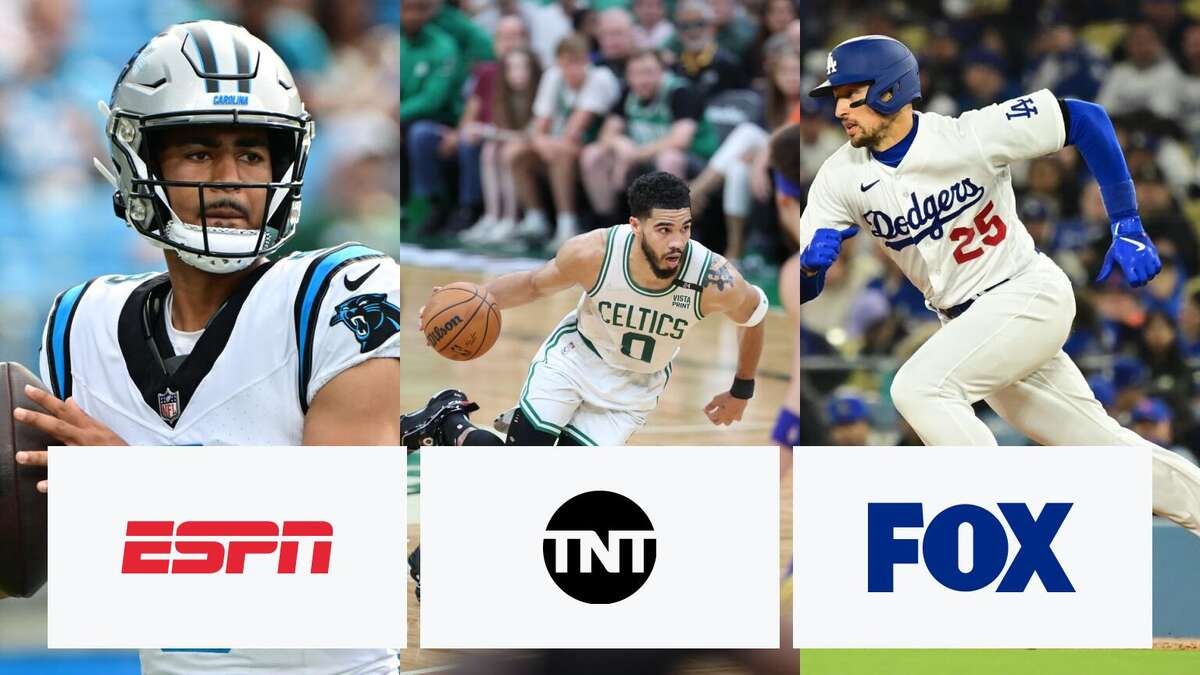Why Is Fox’s CEO Attempting to Lower Expectations for the Joint Venture Sports Streaming Service?
Why Is Fox’s CEO Attempting to Lower Expectations for the Joint Venture Sports Streaming Service?
Fox’s leader Lachlan Murdoch downplayed subscriber goals for the JV sports streamer this week, saying projections of 15 or 20 million viewers were inaccurate.

When ESPN, Fox, and Warner Bros. Discovery revealed to the world that they would be combining their cable channels onto a new sports-focused streaming service, prognostications about hordes of subscribers leaving cable in favor of the joint venture platform immediately began to surface. However, Fox CEO Lachlan Murdoch tried to tamp down expectations for the streamer at the 2024 Morgan Stanley Technology, Media and Telecom conference this week. With the first-of-its-kind service set to debut this fall, there are still a number of significant hurdles to clear before launch, any number of which could explain the exec’s hesitance to predict immediate and industry-changing success.
- Murdoch forecast that the joint venture streaming service would gain five million customers over its first five years.
- He also said that he saw any predictions that the JV streamer would gain 15 to 20 million subscribers quickly as inaccurate.
- Murdoch’s words could be meant to placate wary regulators, or to warn prospective subscribers that it will be much more expensive than some other streamers.

Speaking to Wall Street analysts, Murdoch said that he expected the JV service to accrue 5 million customers in its first five years on the market. He also seemingly quashed the idea that the service could expect to pull in a much bigger subscriber base right away, as some predictions have suggested.
“Some of the talk around this being in the teens or 20 million subscribers, we don’t think that’s the case,” Murdoch said.
There are several reasons why Murdoch would be attempting to downplay the potential for the streamer’s immediate success. The explanation could be as simple as the CEO wanting to mute expectations as to under-promise and over-deliver. However, there are also a number of more strategic rationales that could better explain Murdoch’s more subdued comments.
Is Murdoch Already Concerned About Regulators, Customer Costs?

One reason that Murdoch may have tried to throw cold water on expectations of big subscriber gains for the JV streaming service is that he truly believes the platform will be difficult to scale, and he doesn’t want expectations on Wall Street to race ahead of reality. The stock prices of Disney, Fox, and Warner Bros. Discovery have already taken hits this year thanks to an ad market that continues to be quite soft, as well as declining revenues from reduced cable subscribers thanks to cord-cutting.
There could be data to support Murdoch’s concerns if he truly is afraid that the streamer will attract customers slowly. Its price might be working against it, for one thing; Murdoch confirmed to analysts that the platform would likely be priced at the higher end of analyst predictions, which The Streamable's experts interpreted to mean that it would likely be in the neighborhood of $50 per month. Considering that 30% of respondents to a 2023 survey from DIRECTV said they canceled a streaming service because they needed to cut back on their entertainment costs, there are reasons to worry that only a small audience segment will be able to fit a $50-per-month platform into their budget, especially if it primarily only carries sports channels.
On the other hand, Murdoch could be trying to quash expectations in order to help the streamer fly further under the radar with government regulators. The Department of Justice has pledged to review the proposed joint venture for anti-trust violations, and Fubo is suing to stop the service because it says it will create an anti-competitive environment that will harm consumers. Murdoch’s words could be intended to signal to regulators that the service is not meant to try and muscle traditional pay-TV distributors out of the industry, but rather to create a more competitive environment in which customers have more choices.
If that was his goal, he was supported in his efforts by fellow JV participant Disney CEO Bob Iger. Iger also spoke at the Morgan Stanley TMT conference this week and said that he felt the streamer was not destined to disrupt the traditional cable bundle or keep customers away from linear pay-TV plans in any meaningful way.
“I know a lot of folks claim that it was disruptive to the bundle,” Iger said. “I’m not sure, by the way, the bundle was ever going to get some of those consumers back or the generation that our kids are part of, get them into it. This is a way to do that.”
It sounds as if the executives from the three companies involved in the forthcoming sports streamer are in lock-step about their message, no matter what the ultimate goal of their coordinated talking points is. When discussing the platform after unveiling WBD’s fourth quarter 2023 earnings report in late February, CEO David Zaslav also said that he didn’t see the joint venture as a threat to traditional pay TV.
“We think it coexists quite effectively” with linear cable and satellite, Zaslav said. “We don’t see a lot of people unsubscribing [from] cable in order to get this.”
There are any number of reasons why these C-suiters are trying to lower expectations surrounding the streamer’s potential subscriber base. They could be trying to get regulators and pay-TV distributors off their backs, or they could be attempting to relay to consumers and investors that the streamer will actually be priced very high, and that expecting it to scale at the pace of Disney+ — which famously nabbed 10 million customers in its first day on the market — is just a recipe for disappointment.
Disney+
Disney+ is a video streaming service with over 13,000 series and films from Disney, Pixar, Marvel, Star Wars, National Geographic, The Muppets, and more. It is available in 61 countries and 21 languages. It is notable for its popular original series like “The Mandalorian,” “Ms. Marvel,” “Loki,” “Obi-Wan Kenobi,” and “Andor.”

